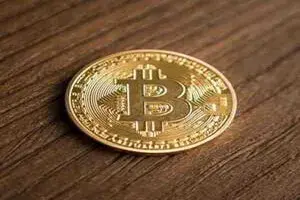By Vikrant Rana and Rupin Chopra
The Government of India has geared up to table the long-awaited ‘Cryptocurrency and Regulation of Official Digital Currency Bill, 2021’ in the Parliament’s Winter Session, commencing on November 29, 2021. The bill seeks to establish a conducive structure for the conception of ‘Official Digital Currency’ to be regulated by the Reserve Bank of India (“RBI”).
For a better understanding of the recent developments happening in the field of Cryptocurrency in India, it is essential to understand the meaning of cryptocurrency and its chequered history in India.
Cryptocurrency: Meaning and Background
Cryptocurrency can be understood as a kind of digital currency, developed using a series of computer codes i.e. cryptography, and is independent of any central regulatory body as such. The underlying technology behind cryptocurrency is the blockchain technology, also understood as a kind of digital ledger facilitating person-to-person (“P2P”) exchange of data or information. Blockchain, generally, use either private or public keys that enable authentication and encryption for protected transactions.
The main purpose behind the creation of cryptocurrency was to furnish higher standards of privacy while also eliminating the interference by governmental/ non-governmental intermediaries, and create a currency that is not susceptible to local pressures such as hyperinflation
Over the past decade, different countries have reacted to cryptocurrencies differently. Ranging from accepting cryptocurrency as a legal tender in El Salvador, to China, where the government has imposed stringent regulations on the use of cryptocurrency as well as the providers of cryptocurrency.
Analyzing the Indian Milieu
2013- With the increasing popularity of the usage of cryptocurrency, the RBI in 2013, vide a press release, cautioned the users, holders and traders against investing in any form of digital currencies including cryptocurrency like Bitcoin, about the potential economic, financial, operational, legal and security risks associated with dealing in such currencies.[1]
2017- Consequently in 2017, a high-level Inter-Ministerial Committee was set up so as to prepare a report on issues arising from the usage of digital currency, and finally in 2019, the Committee submitted its report in which a blanket ban on all private cryptocurrencies in India was highlighted.[2]
2018- In the meantime, in 2018, the RBI issued a circular banning all commercial and financial institutions, and banks from engaging in the usage of digital currencies. Not only this, the circular also directed the institution to discontinue furnishing services to the entities using such digital currencies.[3] This move resulted in a setback faced by the institutions dealing in cryptocurrencies in India.
2020- As a consequence of the ban by RBI, the Internet and Mobile Association of India filed an appeal before the Hon’ble Supreme Court, questioning the legality of this circular by the RBI. In March 2020, the Apex Court passed a judgment quashing the ban on cryptocurrency imposed by the RBI on the ground of it being ultra vires the Constitution of India, as failed the test of proportionality and reasonableness.[4]
2021- In addition to the above, in March 2021, a few amendments were made to Schedule III of the Companies Act, 2013.[5] Herein, it was mandated that starting from the new financial year, the companies are under an obligation to disclose their investments in cryptocurrencies, incurred profits or losses on such transactions, and particulars of deposits made for the purpose of trading or investing in cryptocurrency.
At present, a big chunk of the Indian population holds different cryptocurrencies. In the past two years, the investments in the fin-tech sector have been rising exponentially.
Introduction of the Cryptocurrency Bill- the Final Strike?
In the upcoming winter session, starting from November 29, the Government of India intends to introduce the ‘Cryptocurrency and Regulation of Official Digital Currency Bill, 2021’ in the Parliament.
The bill, as described on the Lok Sabha website, is to “create a facilitative framework for the creation of the official digital currency to be issued by the Reserve Bank of India. It also seeks to prohibit all private cryptocurrencies in India, however, it allows for certain exceptions to promote the underlying technology of cryptocurrency and its uses”. The news of introduction of the bill itself has sparked widespread panic amongst the investors, resulting in a sudden market crash by up to 20%. In the past few weeks, enough clarity has been provided, elucidating upon no intentions of the leading government to boost the usage of cryptocurrency in India, and probable penalization for using the same as against the government guidelines.
The officials are confident about getting the bill sanctioned, as presently the BJP government holds an easy majority in the Parliament. However, at present, the Government has not provided any clarity as to what exactly would fall within the category of ‘private cryptocurrencies’. In furtherance, there are widespread doubts if the investors would be given sufficient time to exit as per their wish after the bill has been enacted.
If this ban does get effectuated, India would become first major economy after China to make the use of cryptocurrency illegal. It is being anticipated that a blanket ban on cryptocurrency would ultimately force crypto-exchanges to stop their operations in India. As happened in China when one of the world’s largest crypto-exchanges, Huobi, shut down after China issued a blanket ban on cryptocurrencies in September 2021.
[1] https://www.rbi.org.in/commonman/English/Scripts/PressReleases.aspx?Id=2474
[2]https://dea.gov.in/sites/default/files/Approved%20and%20Signed%20Report%20and%20Bill%20of%20IMC%20on%20VCs%2028%20Feb%202019.pdf
[3] https://rbidocs.rbi.org.in/rdocs/notification/PDFs/NOTI15465B741A10B0E45E896C62A9C83AB938F.PDF
[4] Internet and Mobile Association of India v. Reserve Bank of India, AIR 2021 SC 2720.
[5] https://mca.gov.in/Ministry/pdf/ScheduleIIIAmendmentNotification_24032021.pdf
Anushka Choudhary, Intern at S.S. Rana & Co. has assisted in the research of this article.


